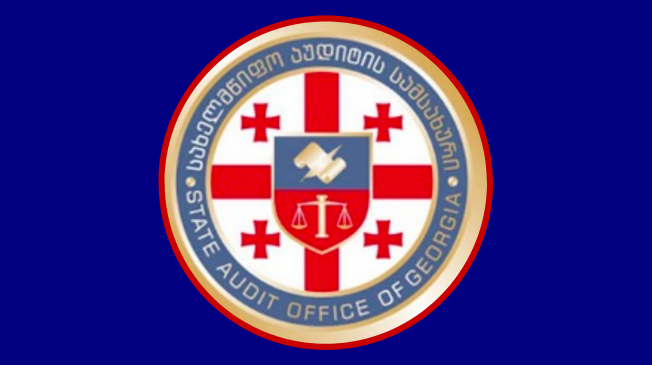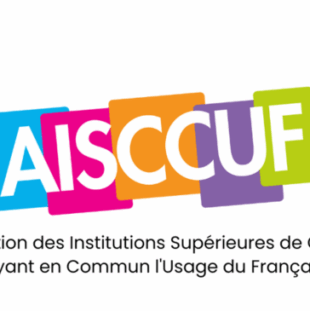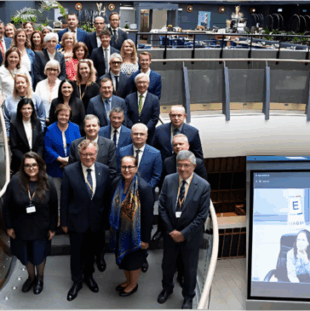Ethics and Integrity International Practices Fostered at the State Audit Office of Georgia

Supreme Audit Institutions have a significant impact on the ethical conduct and integrity of public administration. Implementing ethics and integrity in public service is therefore of crucial for good governance practices among the SAIs. To retain public trust and confidence, the State Audit Office of Georgia (SAOG) adheres to the highest ethical and integrity standards and its auditors and public servants are required to carry out their responsibilities with honesty, integrity, and transparency in auditory work and stakeholder engagement. This article, after reviewing the general framework of the code of conduct and the ethical norms, discusses how ethics and integrity have been practiced at the State Audit Office in line with the Organic Law of the State Audit Office of Georgia and the General Administrative Code of Georgia, as well as international auditory practices. As a member institution of the International Organization of Supreme Audit Institutions (INTOSAI), SAI Georgia is guided by the practices of International Standards of Supreme Audit Institutions (ISSAI) reinforcing its ethical values.
Why is the practice of ethics is important for the SAO Georgia?
The State Audit Office is an independent governmental entity in charge of auditing the use of public finances, ensuring that state institutions operate properly and that public money is spent effectively. The Office takes a crucial role to ensure that government initiatives achieve their goals with public money. The SAOG guarantees that public finances are spent properly and that government programs provide intended benefits to the public integrally. The work of the SAOG, guided by the principles of independence, objectivity, and professionalism, is dedicated to openness, responsibility, and ethical behavior in all of its operations. The Office undertakes audits, issues its findings and recommendations in a neutral, objective, and fair way, free of political or other external constraints. The SAOG is also transparent and accountable, ensuring that its actions are carried out in line with existing laws and regulations and that its findings and recommendations are made public in a timely and accessible manner increasing government openness and accountability.
What does the State Audit Office do to maintain ethical policies with the international auditing standards?
Number of steps have been taken by the State Audit Office to foster ethics and integrity culture in its operations. For the first time, the SAO has formed a permanent Ethics Commission, one of those few in public sector, to ensure that ethical regulations are implemented in compliance with worldwide auditing standards verified in accordance with the Code of Ethics for the Auditors of the State Audit Office and Article 321 the Law on the State Audit Office. Along with legislative basis, having developed the Handbook of the Code of Ethics, the SAO has created mechanisms for reporting and looking into ethical issues, auditing rules, and safeguards against external influences.
The SAO has conducted number of workshops, trainings as well as self-assessment of the institution to integrate ethics. Among those initiatives, within the donor supported European Union Project “Institutional Strengthening of the State Audit Office” between 2017-2020, the experts from the State Audit Office of Latvia (Valsts Kontrole) assisted the SAO. In 2018, the Netherlands Court of Audit (NCA) conducted the integrity self-assessment of the institution according to the IntoSAINT (Self Assessment Integrity) methodology which is a self-assessment tool developed by International Organization of Supreme Audit Institutions (INTOSAI) to help Supreme Audit Institutions with integrity policy measures for strengthening the organization’s internal risk management and control systems to improve organizational performance. As a result, the SAO received the highest assessment in the Supreme Audit Institutions Performance Measurement Framework (SAI-PMF) in 2022 being assessed by both audit and non-audit activities receiving 4 out of max 4 points for internal governance and ethics.

Apart from legislative and regulatory documents, bilateral and international development support, by joining the European Organization of Supreme Audit Institutions (EUROSAI) Task Force on Audit & Ethics in 2021, the SAO has aspired to create international practices that promote global ethical culture.
Next to the bilateral support, multilateral dimension of experience sharing showcases commitment to universal values. Most notable of these has been the knowledge sharing with the US Government Accountability Office (GAO) Center of Audit Excellence (CAE) engaged in overseas work in collaboration with the US Agency for International Development (USAID), in the scope of the Memorandum of Understanding with the SAO concluded in 2019. This collaboration has strengthened apart from performance audit direction, institutional development and ethics related practice with the SAO.

With the ongoing initiative updating the SAO’s ethics practices together with the US counterparts, learning about the audit ethical practices governing within the U.S. GAO, followed by the ethics auditor trainings, the SAO is discussing ethics training scenarios being surveyed to strengthen ethics agenda.

How can the Audit State Office improve the ethics practice?
The SAO is an important example of how ethics and integrity in public service through implementing several mechanisms to encourage ethical behavior among its staff helps to maintain independence, neutrality, and professionalism of its work. The Office continues to prioritize ethics and integrity creating effective mechanisms for improving continuous awareness among its auditors to strengthen managing ethics related practices. Strong ethics and integrity practices, in its turn, supports maintaining public trust and confidence in operations, guaranteeing effective use of public funds and value for money.
Authors:
Sophio Dvalishvili, Deputy Auditor General, Chairperson of Ethics Commission
Nino Kereselidze, Commission Secretary, Head of International and Donor Relations Division
Irina Tatishvili, Commission Member, Deputy Head of Legal Department
Nino Mdinaradze, Commission Member, Head of Human Resource Management Division
Enquiries: ethics@sao.ge





